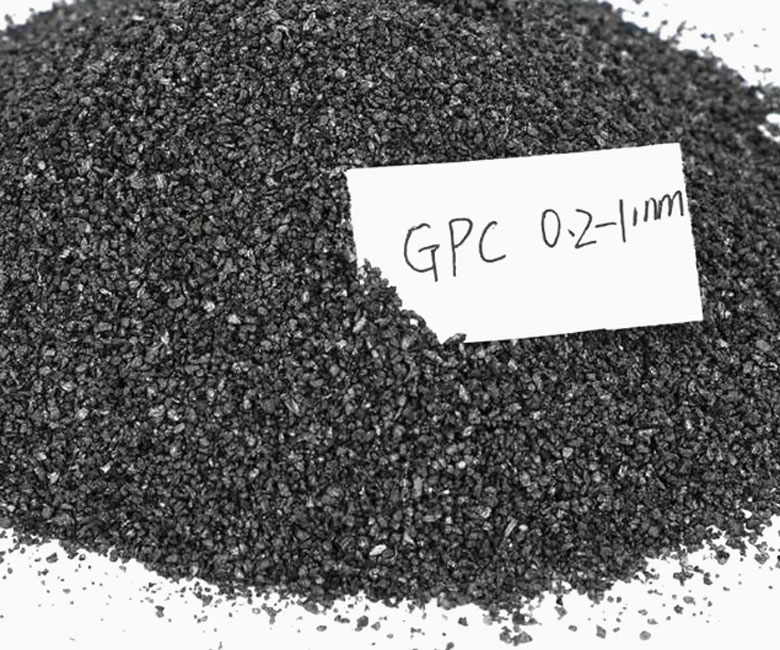
Graphite Petroleum Coke, due to its unique properties, is used as a multi-functional raw material in the production of fuel, metallurgy and batteries. Specifically, the high carbon and low nitrogen and sulfur content. It has a high thermal conduction, making it an ideal material for use in electric-arc furnace (EAF).
GPC is used in EAF steelmaking to increase the carbon content and improve the yield of the steel. It also prevents the formation of unwanted inclusions within the resulting steel. In addition, GPC has a low ash content that minimizes contamination during the steelmaking process.
GPC's crystalline structure also allows it to serve as a raw material for producing high-quality graphite electrodes. Graphite electrodes are a vital component of electric arc-furnace steelmaking as they can handle large currents and withstand extreme temperatures. The superior qualities of calcined coal graphite are also suitable for battery anodes where its high thermal conductivity and electrical conductivity make it particularly beneficial.

Reusing GPC waste in the aluminum or steel industries can also help companies conserve natural resources and reduce energy consumption. This concept, known as the circular economy, is gaining momentum in the industry due to its ability to reduce environmental impact and promote sustainable business practices.
The amorphous carbon structure of petroleum coke can be converted into a crystalline graphite by subjecting it to extreme heat in a process called calcination. The carbon-carbon bonds of the crude oil undergo a reorganization during this process to produce a graphite structure that is more ordered and optimized. This transformation allows the coke to produce higher quality industrial materials, such as refractory or fuel materials.
As a result of the extensive uses of GPC, it is an important source of industrial raw materials and energy. However, its production and combustion can produce fine particulates, volatile organic compounds, and greenhouse gases. These emissions may have a negative impact on air quality and climate. GPC is helping to reduce its environmental impact thanks to advances in recycling technology, and collaborations with other industry partners.
During the calcination, GPC is heated above 1,000degC in order to remove volatile components and to increase its density. It is then ground into a fine powder and dried to remove moisture before being reused in industrial applications. GPC's pore and surface properties also allow it to act as a useful adsorbent, absorbing heavy metal ions in wastewater, organic pollutants in wastewater treatment, and harmful gases in exhaust fumes.
Graphite Petroleum Coke's advanced properties make it a crucial raw material for a number of important industrial processes. This includes steelmaking and the aluminum smelting process. In addition, its low sulfur and nitrogen levels help ensure optimal performance of the carbon products it forms, while its high thermal conductivity facilitates efficient energy transfer in these applications. Combining these attributes can lead to improved metallurgical qualities and increased productivity in these industries.

Write a Message